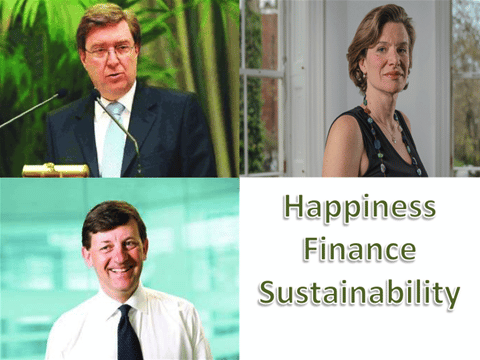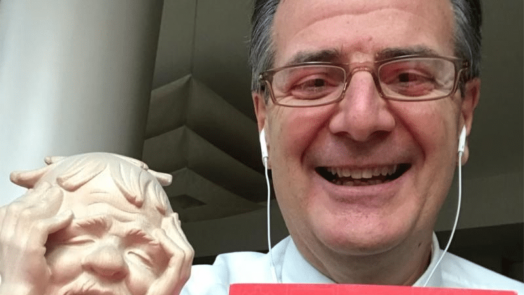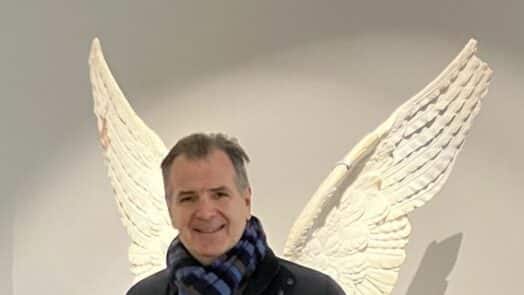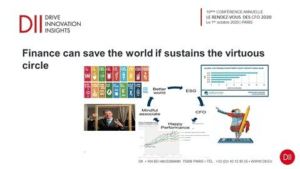Italy up to a Fresh Start

A powerful trio of experts will make Italy exit from Covid crisis with a Fresh Start.
A combination of Happiness, Sustainability and Finance will make the country flourish again.
The 3 experts have the potential to transform Italy with a renewed approach to Finance, that goes back to its servant role, Happiness that becomes the purpose of Society and Sustainability that is the process applied to evaluate new programs, and would give us all a better future. Reading through their CVs and past achievements in this article I try to imagine what proposals they could make for the Fresh Start.
Italy Fresh start. A new perspective: Happiness as the goal of Good Governance
The first expert that will influence the agenda of the Fresh Start is Enrico Giovannini who convinced the Italian government in 2016 to add to the economic objectives included in the mid term plan, measures of Well being (BES Benessere Equo e Sostenibile) in line with the approach of some of the oldest democracies in the world. The Enlightenment, the French and American Revolution had established that the right to happiness was an inalienable human right. “Man takes back the center, there is no absolute Happiness, but everyone has that right”. Adapting 1689 Locke’s reflection that the need to pursue happiness is the foundation of freedom, those early constitution laws defined that economic growth is not enough if not combined with greater happiness.Caring for our happiness and us is the foundation of our freedom.
Thanks to Giovannini’s idea, it has been very positive that the Italian government has continued to publish the indicators of Fair and Sustainable Wellness (BES). The government has supported this innovation with conviction, which sees Italy at the forefront at an international level. And it is glad to see that such perseverance paid off: recently both the 2020 World Happiness Report and the BES results published by ISTAT show “Italy before Covid” in an improved position in Happiness and Well being. It is positive to share that in the recently published World Happiness Report, Italy ranked 31st in the Happiness ranking, vs 37 last year and below 40 a few years ago. The recovery is due to the fact that part of the economic crisis was past, life expectancy stays high and support and generosity have improved.
Such an improvement is confirmed by the recently published BES measures
they show that Italians feel better in almost all the measures with strong signal that after the crisis of 2008-2013 which affected the well being of citizens, in particular by accentuating inequalities and aggravating the phenomenon of unemployment and absolute poverty, especially among young people. However, a recovery of income and employment is already underway; social exclusion phenomena such as failure to participate in the labor market and early school dropout are attenuated; some public sector efficiency indicators improve, such as the duration of civil trials.
Learning from the old democracies experience Giovannini proposes that: “To build a better future we need a Utopia. A sustainable utopia. It is the main road for the achievement by 2030 of the sustainable development goals set by the UN. Hunger, health, water, poverty, energy, infrastructure, employment, inequalities, climate, peace, education are issues that are addressed only with integrated thinking and the contribution of political, economic and social forces. Continuing to think and act as in the past means precipitating our world into a profound environmental, economic and social crisis. Everyone’s commitment is required and a profound change in the way we read and deal with the problems that surround us.
A lot more needs to be done after the Covid storm that has probably sent many back to 2008 crisis times but if Giovannini will be able to insist that not only Economic measures and objectives is a basis on which to continue and extend the effort to improve well being, equity and social, economic and environmental sustainability. The inclusion of the analysis of well-being in the planning documents is functional to a greater attention of political decision-makers and public opinion towards these issues so important for citizens. We hope that it will produce further improvements in the years to come. “
The ground Giovannini will find for the Fresh Start is fertile: tools are in place to combine policies with socio economic and Happy impact.
Italy Fresh start a new Finance: The State as patient innovation investor to sustain Research and development and Start ups
Mariana Mazzucato is a professor at University College London in Economics of Innovation and Public Value and she is the founder/director of the Institute for Innovation and Public Purpose (IIPP). She is also a member of the Scottish Government’s Council of Economic Advisers and South Africa’s Economic Advisory Council. In 2019, she joined the UN Committee for Development Policy.
Mazzucato is the author of The Entrepreneurial State: debunking public vs. private sector myths and The Value of Everything: making and taking in the global economy. In 2016, Mazzucato co-edited a book, Rethinking Capitalism: Economics and Policy for Sustainable and Inclusive Growth with Michael Jacobs. In 2013 the New Republic called her one of “the three most important thinkers about innovation”.
The State Investment Bank Mariana is proposing would define mission oriented projects with innovation goals in the interest of Society as a whole and a rebalanced public private partnership. Rather than just facilitating innovation, with the direction being left to markets, such policies include explicit technological and sectorial directions. Therefore, public financing of innovation is not always a passive reaction to market failures, but an active choice to direct funds towards visionary missions. In its most general form, the mission-oriented framework differentiates between public policies that target the development of specific technologies in line with governmental goals (‘missions’) and those that aim for the institutional development of a system of innovation. This framework helps to understand the greater breadth of activities that public spending fosters; not only upstream areas like basic research (as in a market failure framework), but also applied research and early-stage seed financing. Such mission-oriented investments are featured both in security-led missions (driving technologies behind the military and energy complexes) and in such diverse areas as health and agriculture. Also, the public sector’s 8 current active role in tackling renewable energy investments can be seen as a new mission related to the green economy. Other new missions include addressing such great societal challenges as the ageing/demographic crisis, inequality, and youth unemployment. In a very recent article on Social Europe Mariana talks about an “Inclusive and sustainable approach to the post Covid”. ”The bad news is that the Covid-19 crisis is exacerbating all these problems. – she says- The good news is that we can use the current state of emergency to start building a more inclusive and sustainable economy. The point is not to delay or block government support, but to structure it properly. We must avoid the mistakes of the post-2008 era, when bailouts allowed corporations to reap even higher profits once the crisis was over but failed to lay the foundation for a robust and inclusive recovery. This time, rescue measures absolutely must come with conditions attached. Now that the state is back to playing a leading role, it must be cast as the hero rather than as a naive patsy. That means delivering immediate solutions, but designing them in such a way as to serve the public interest over the long term.
In Italy, Mariana Mazzucato could re direct the resources available within Cassa Depositi e Prestiti and the EU loans for Green Deal, plus the funds available for Start ups to redesign Financial collaborations between private and public sector and re-ingnite a virtuous cycle.
Italy Fresh Start a new Sustainability: Technology, Inclusion and Planet
To imagine how Vittorio Colao will influence the agenda I suggest we look at what mission he set to Vodafone, a company where he spent the most of his career. The company mission could be applied also to Italy: Digital society, Inclusion for All, and Planet.
Covid made us aware and capable to take full advantage from technology and connectivity. They truly enhanced the quality of our lockdown time. As per Colao’s former company mission, Italy “could become a connected society that enhances socio-economic progress, embraces everyone and does not come at the cost of our planet. A connected digital society, where data flows at speed, connecting people, communities and things to the internet like never before. Citizens will access an ever-growing range of services in real-time and businesses can develop new products and services to meet the needs of future generations. The Internet of Things (IoT) will create more efficient, safer and smarter transport; and mobile financial services will reduce poverty and enable access to essential services like healthcare and education. These services enable incredible innovation and technologies to be developed to help make our lives easier, healthier, smarter and more fulfilling”.
We believe that the opportunities and promise of a better digital future should be accessible to all. We are committed to ensuring that the more vulnerable are not left behind on the journey towards that future. Through our technology, we will work to bridge the divides that exist and help people to contribute equally and fully to society.
We believe that urgent and sustained action is required to address climate change, and business success should not come at a cost to the environment. Through our commitment to halve our environmental impact, we will help to ensure a sustainable future for all”.
It’s sound like a plan.
My best Easter wishes for a good work to this powerful and innovative trio.
Share this page





